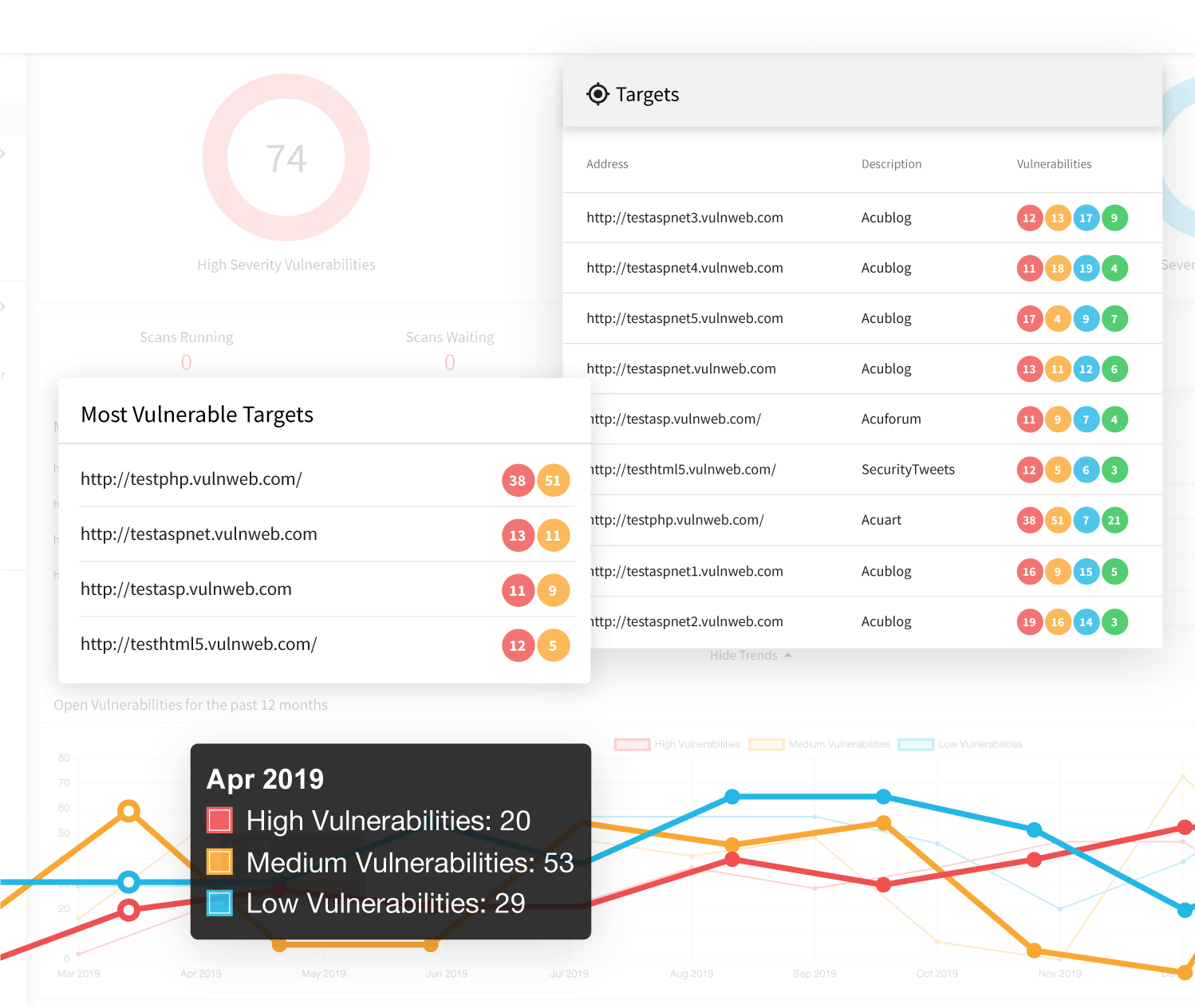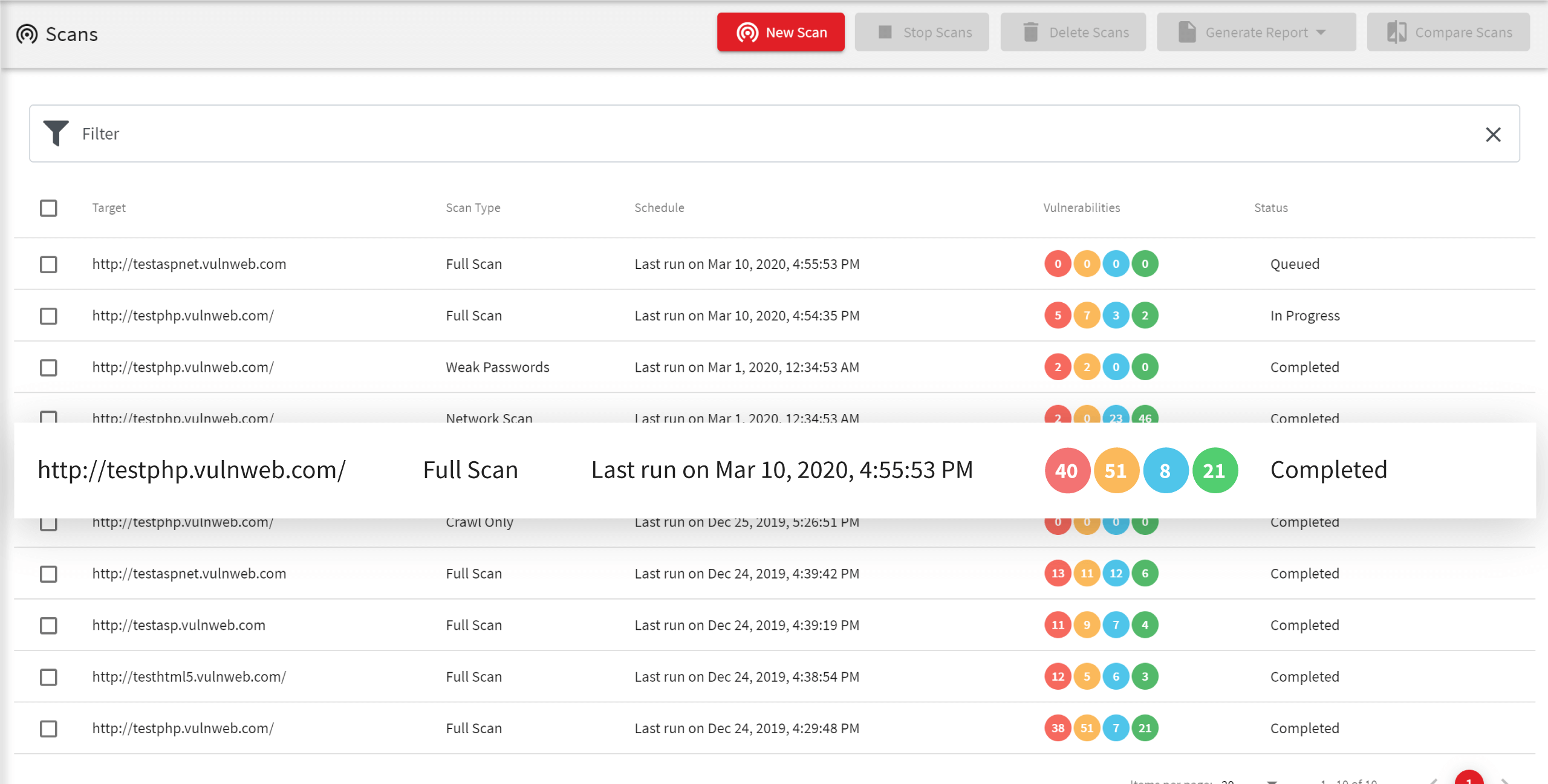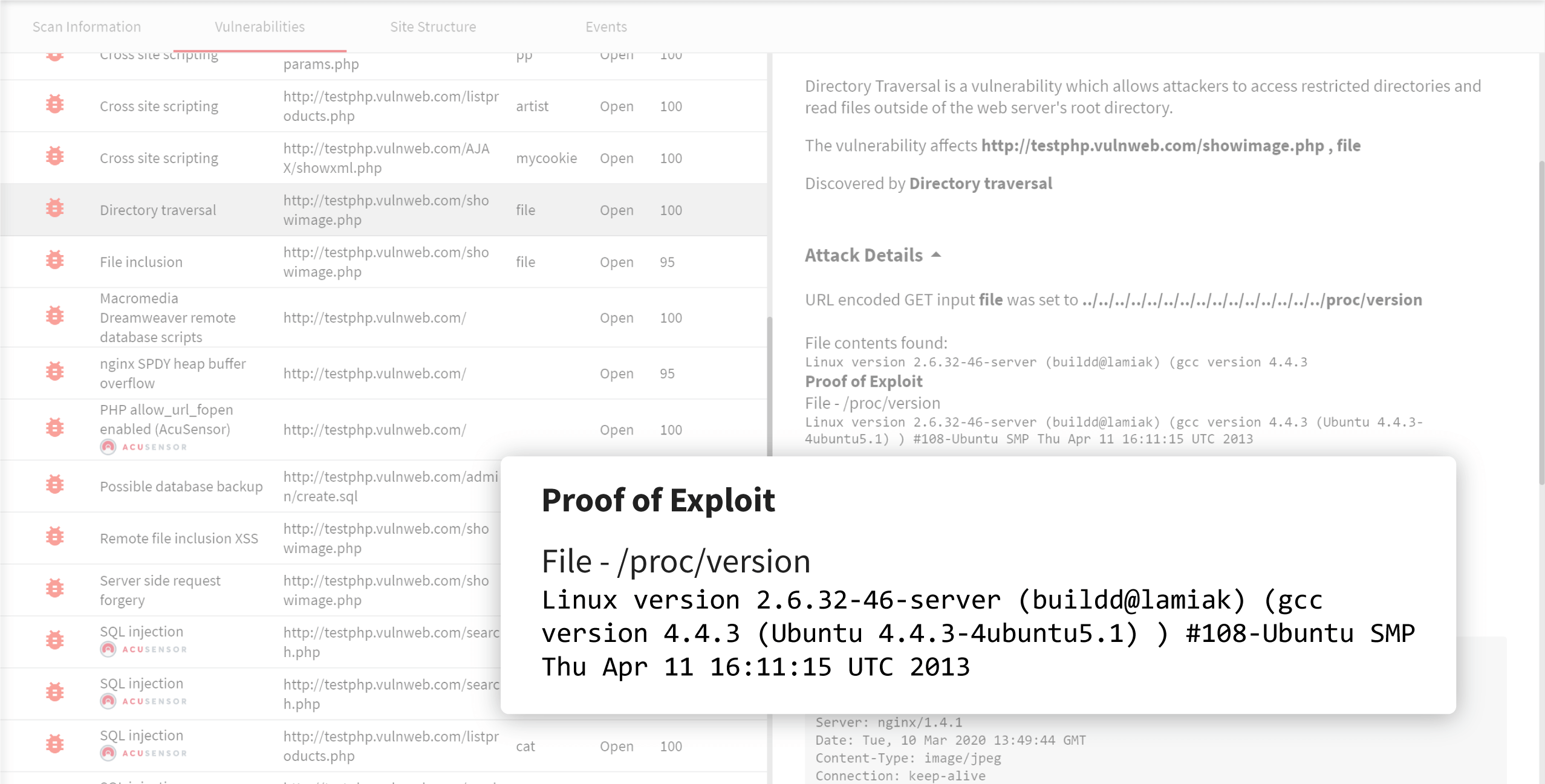
Reliability and Versatility
Acunetix Linux version gives you reliability and versatility that you have come to trust. Just like our Microsoft Windows version, our macOS version, and our online version, Acunetix on Linux features the exclusive DeepScan technology. The Linux version includes the DeepScan Engine powered by Chromium to accurately map out and scan everything from traditional web applications to the newest JavaScript-dependent single-page applications (SPAs). Like all versions, it also gives you the advantage of AcuSensor technology, which verifies a wide range of high-severity vulnerabilities and guarantees a low rate of false positives in the scan results. Now, you get all of the functionality of Acunetix, with all of the dependability of Linux. Linux is already the most popular operating system for critical business servers that need as close to 100% uptime as possible. That trusted platform can form the foundation of your web application scanning infrastructure, too.
Cost-Effectiveness
With Acunetix on Linux, you can not only take advantage of best-in-class web application security scanning, but also save money on software licensing and infrastructure costs. Since Linux is free and open-source, your business no longer has to purchase Windows licenses for a web application scanner. Furthermore, you have the flexibility of installing Acunetix on Linux desktops or servers located on-premises or on private cloud services such as Amazon AWS, Digital Ocean, Google Cloud, or those offered by any other provider that offers Linux instances.
Better Resource Allocation
Compared to the Microsoft Windows version, the Linux version of Acunetix uses fewer system resources to run the scan console and scan engine. With fewer system resources being used in the background, this leaves more available for the act of scanning web applications. For any business with a large web presence, this saves time in the vulnerability scanning process. The security team can proceed more quickly to reviewing scan results, prioritizing remediation tasks, and fixing critical security issues identified in the vulnerability assessment.Frequently asked questions
A Linux vulnerability scanner is a vulnerability scanner that you can install and run on-premises on a computer with a Linux operating system. A Linux vulnerability scanner will scan websites and web applications no matter if they are hosted on Linux or on Windows.
You should use a Linux vulnerability scanner if your business primarily runs on Linux. You use a vulnerability scanner on a workstation, not on a server. If your primary operating system for workstations is Microsoft Windows, you should use a Windows version of Acunetix instead.
Read more about our vulnerability scanner for Microsoft Windows.
In the case of Acunetix Standard and Acunetix Premium, the Linux vulnerability scanner and the Windows vulnerability scanner are exactly the same products. They have the same functionality, the same capabilities, they only use a different underlying operating system. Acunetix is also available in the cloud (Acunetix Online) if you do not need to run a vulnerability scanner on-premises.
Acunetix is proud to be the first and only professional vulnerability scanner that is available on-premises for the Linux operating system (Acunetix Standard and Acunetix Premium). All other professional vulnerability scanners are available either only online or for Microsoft Windows.
Recommended reading
Learn more about prominent vulnerabilities, keep up with recent product updates, and catch the latest news from Acunetix.

“We use Acunetix as part of our Security in the SDLC and to test code in DEV and SIT before being promoted to Production.”
Kurt Zanzi, Xerox CA-MMIS Information Securtiy Office, Xerox